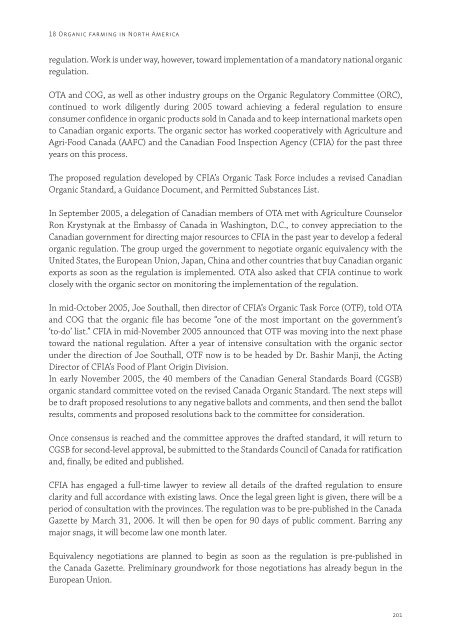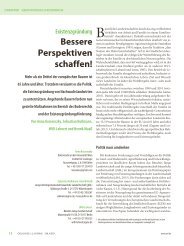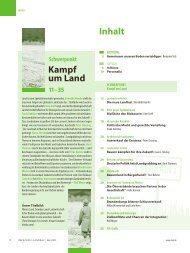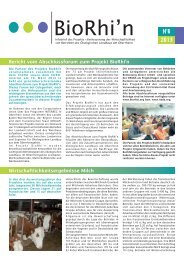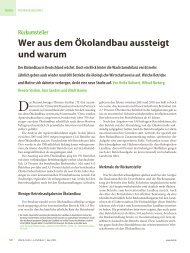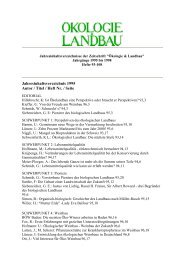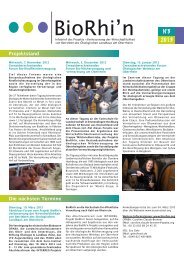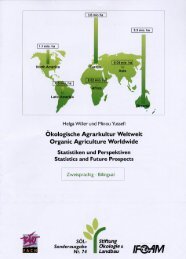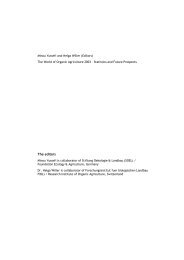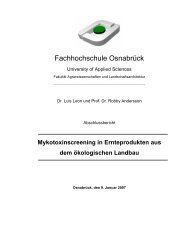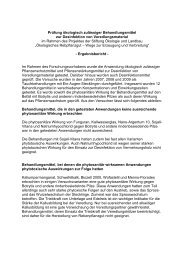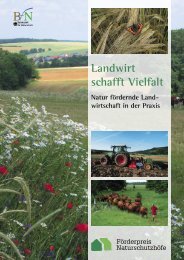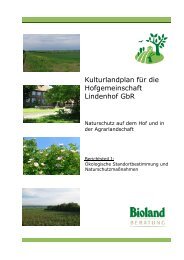the world of organic agriculture - Organic Eprints
the world of organic agriculture - Organic Eprints
the world of organic agriculture - Organic Eprints
You also want an ePaper? Increase the reach of your titles
YUMPU automatically turns print PDFs into web optimized ePapers that Google loves.
18 <strong>Organic</strong> farming in North America<br />
regulation. Work is under way, however, toward implementation <strong>of</strong> a mandatory national <strong>organic</strong><br />
regulation.<br />
OTA and COG, as well as o<strong>the</strong>r industry groups on <strong>the</strong> <strong>Organic</strong> Regulatory Committee (ORC),<br />
continued to work diligently during 2005 toward achieving a federal regulation to ensure<br />
consumer confidence in <strong>organic</strong> products sold in Canada and to keep international markets open<br />
to Canadian <strong>organic</strong> exports. The <strong>organic</strong> sector has worked cooperatively with Agriculture and<br />
Agri-Food Canada (AAFC) and <strong>the</strong> Canadian Food Inspection Agency (CFIA) for <strong>the</strong> past three<br />
years on this process.<br />
The proposed regulation developed by CFIA’s <strong>Organic</strong> Task Force includes a revised Canadian<br />
<strong>Organic</strong> Standard, a Guidance Document, and Permitted Substances List.<br />
In September 2005, a delegation <strong>of</strong> Canadian members <strong>of</strong> OTA met with Agriculture Counselor<br />
Ron Krystynak at <strong>the</strong> Embassy <strong>of</strong> Canada in Washington, D.C., to convey appreciation to <strong>the</strong><br />
Canadian government for directing major resources to CFIA in <strong>the</strong> past year to develop a federal<br />
<strong>organic</strong> regulation. The group urged <strong>the</strong> government to negotiate <strong>organic</strong> equivalency with <strong>the</strong><br />
United States, <strong>the</strong> European Union, Japan, China and o<strong>the</strong>r countries that buy Canadian <strong>organic</strong><br />
exports as soon as <strong>the</strong> regulation is implemented. OTA also asked that CFIA continue to work<br />
closely with <strong>the</strong> <strong>organic</strong> sector on monitoring <strong>the</strong> implementation <strong>of</strong> <strong>the</strong> regulation.<br />
In mid-October 2005, Joe Southall, <strong>the</strong>n director <strong>of</strong> CFIA’s <strong>Organic</strong> Task Force (OTF), told OTA<br />
and COG that <strong>the</strong> <strong>organic</strong> file has become “one <strong>of</strong> <strong>the</strong> most important on <strong>the</strong> government’s<br />
‘to-do’ list.” CFIA in mid-November 2005 announced that OTF was moving into <strong>the</strong> next phase<br />
toward <strong>the</strong> national regulation. After a year <strong>of</strong> intensive consultation with <strong>the</strong> <strong>organic</strong> sector<br />
under <strong>the</strong> direction <strong>of</strong> Joe Southall, OTF now is to be headed by Dr. Bashir Manji, <strong>the</strong> Acting<br />
Director <strong>of</strong> CFIA’s Food <strong>of</strong> Plant Origin Division.<br />
In early November 2005, <strong>the</strong> 40 members <strong>of</strong> <strong>the</strong> Canadian General Standards Board (CGSB)<br />
<strong>organic</strong> standard committee voted on <strong>the</strong> revised Canada <strong>Organic</strong> Standard. The next steps will<br />
be to draft proposed resolutions to any negative ballots and comments, and <strong>the</strong>n send <strong>the</strong> ballot<br />
results, comments and proposed resolutions back to <strong>the</strong> committee for consideration.<br />
Once consensus is reached and <strong>the</strong> committee approves <strong>the</strong> drafted standard, it will return to<br />
CGSB for second-level approval, be submitted to <strong>the</strong> Standards Council <strong>of</strong> Canada for ratification<br />
and, finally, be edited and published.<br />
CFIA has engaged a full-time lawyer to review all details <strong>of</strong> <strong>the</strong> drafted regulation to ensure<br />
clarity and full accordance with existing laws. Once <strong>the</strong> legal green light is given, <strong>the</strong>re will be a<br />
period <strong>of</strong> consultation with <strong>the</strong> provinces. The regulation was to be pre-published in <strong>the</strong> Canada<br />
Gazette by March 31, 2006. It will <strong>the</strong>n be open for 90 days <strong>of</strong> public comment. Barring any<br />
major snags, it will become law one month later.<br />
Equivalency negotiations are planned to begin as soon as <strong>the</strong> regulation is pre-published in<br />
<strong>the</strong> Canada Gazette. Preliminary groundwork for those negotiations has already begun in <strong>the</strong><br />
European Union.<br />
201


